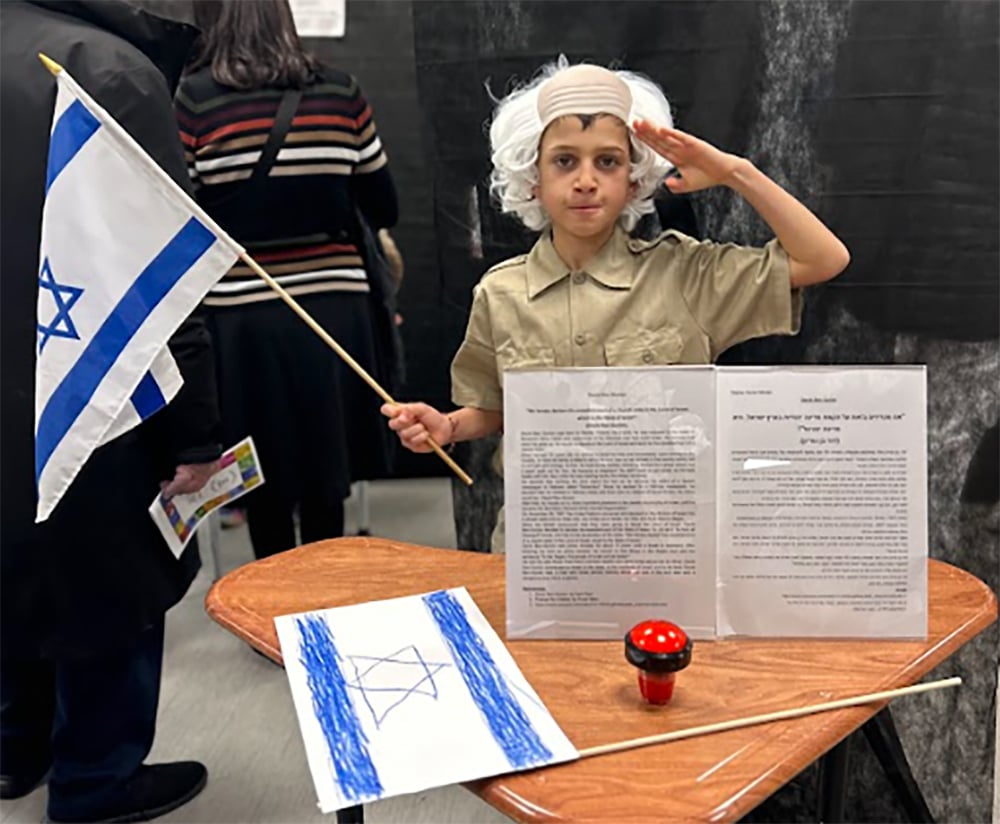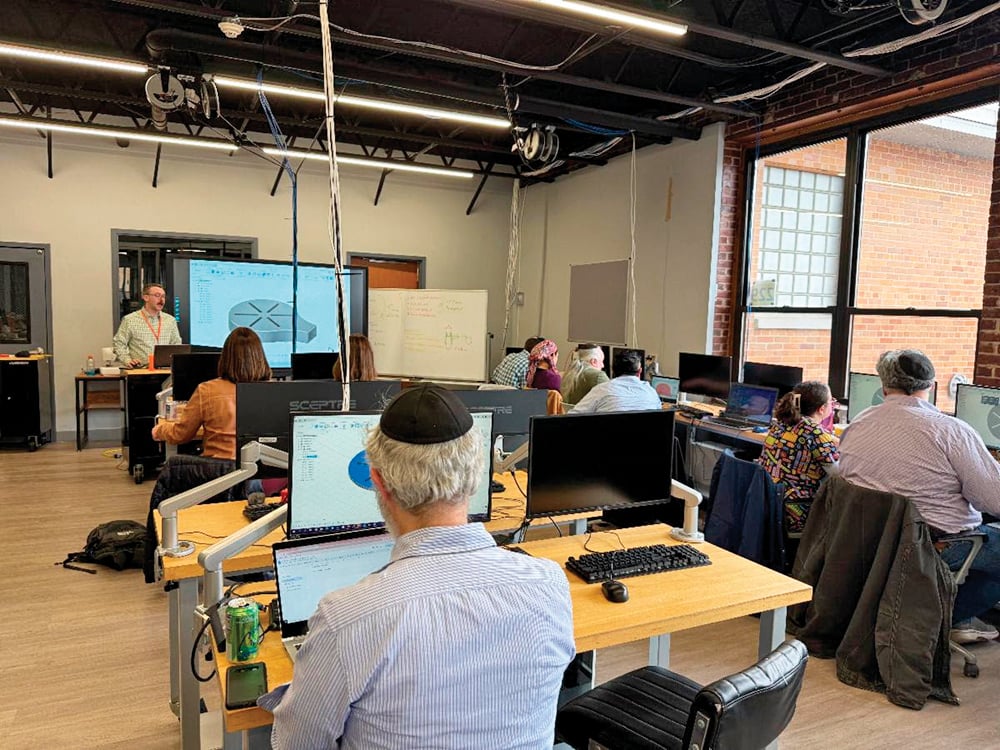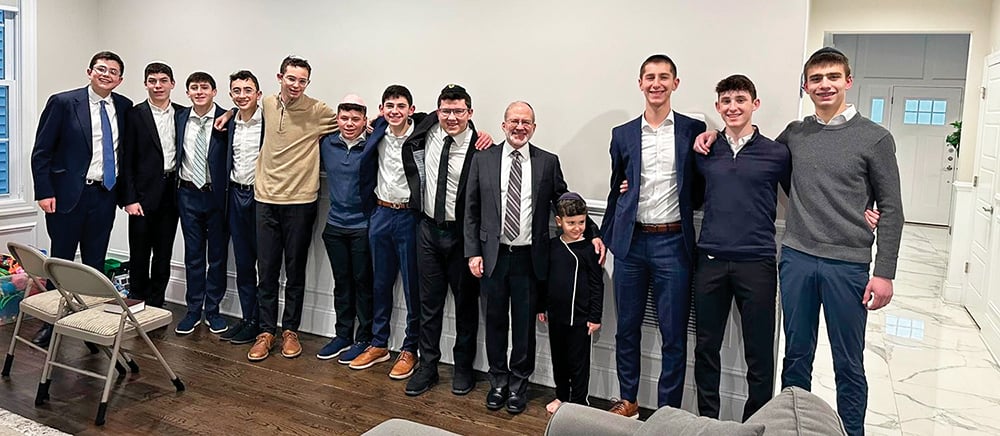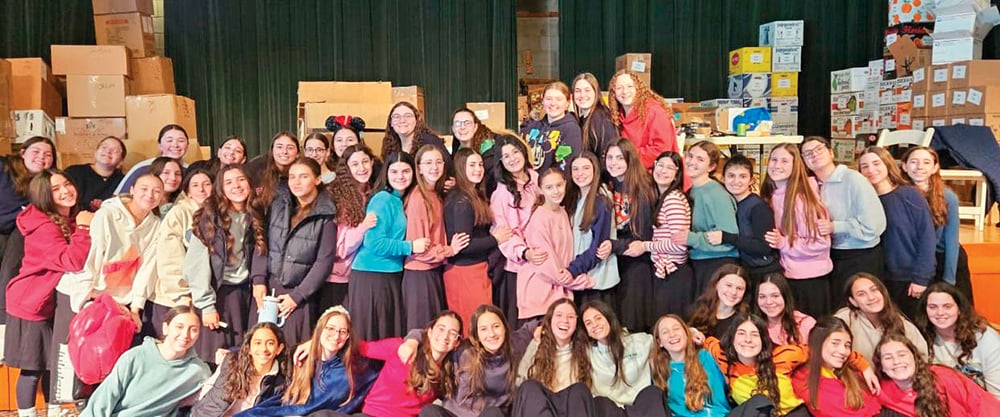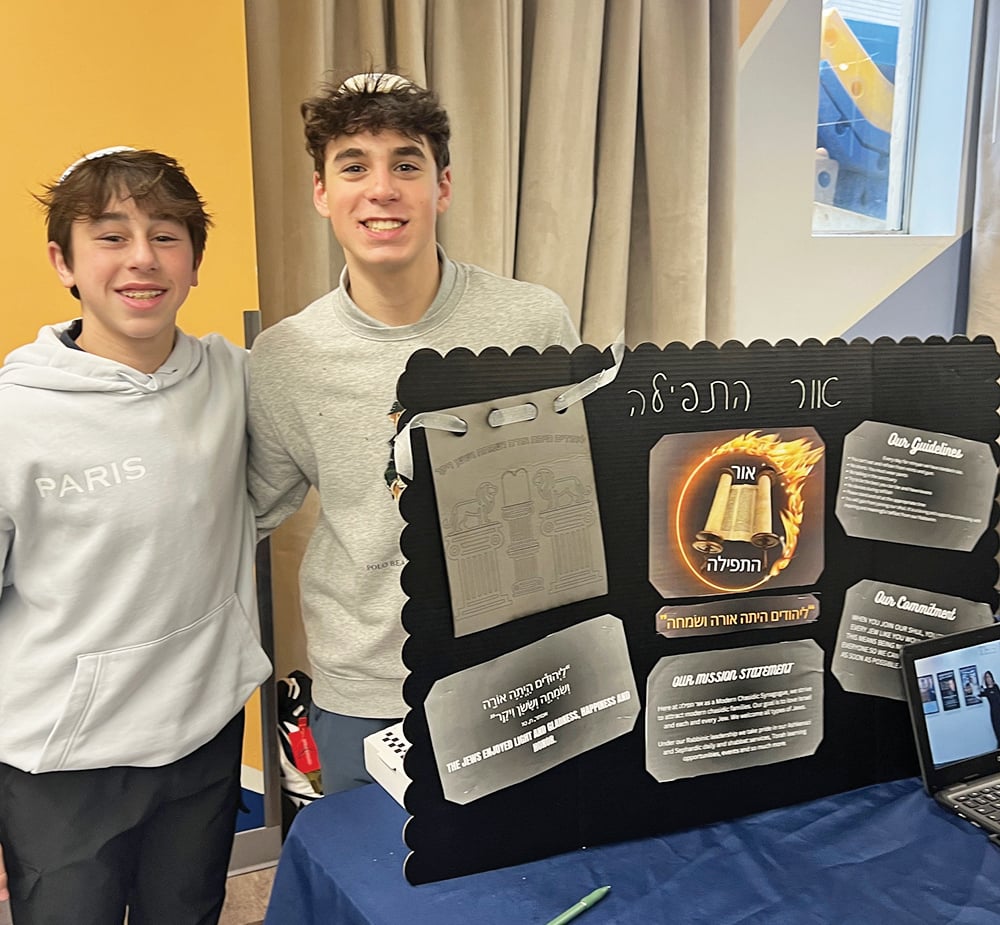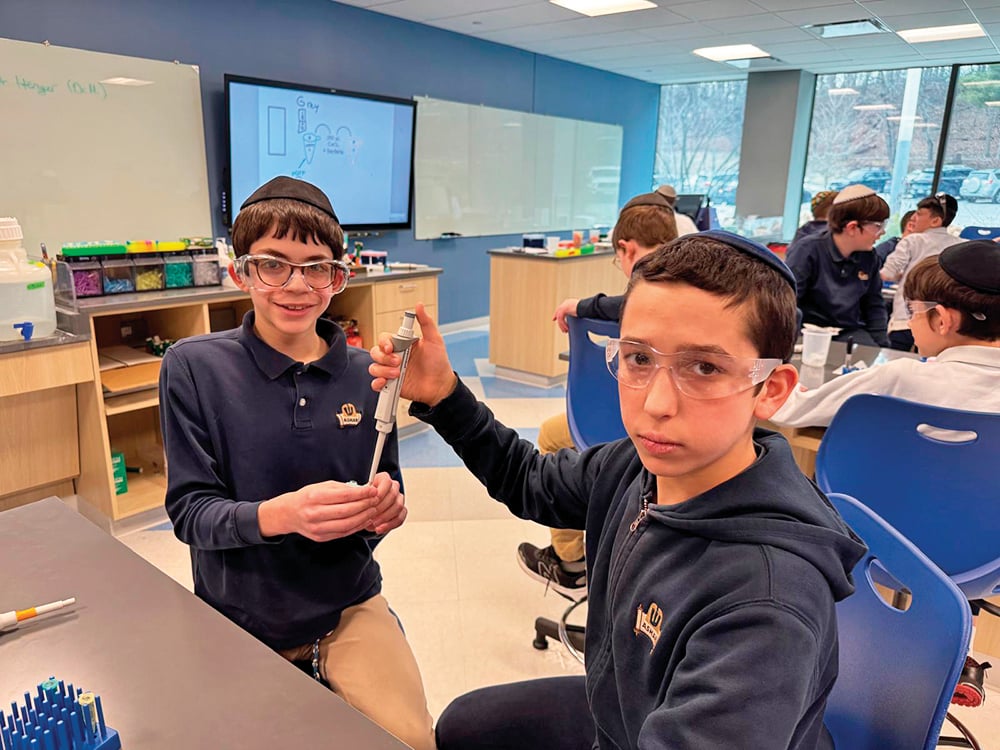Rav Zelik Epstein, zt”l, the beloved rosh yeshiva of Sha’ar haTorah Grodno in Queens, New York, was renowned for his incisive brilliance and remarkable humility. A member of the Moetzes Gedolei Torah, many considered Rav Zelik, zt”l, to be the greatest talmid of the Mirrer mashgiach, Reb Yerucham Levovitz. A masmid more shy by nature, Rav Zelik was most comfortable in the confines of the beis midrash and avoided publicity and controversy.
At Rav Zelik’s levaya, his son Rav Kalman, shlita, related that his father would often tell him that at the end of our lives we will not be certain if the Torah we studied and taught was understood correctly. Nor will we be certain that our tefillos were prayed with appropriate kavanah, holy intention and clear focus. There is, however, one merit that we can be sure we will retain: any time we have met a Jew in need, feeling broken, depressed, fearful or sad, and left them smiling.
***This weekend marks Rosh Chodesh Adar Sheini, the start of a month-long celebration of the miraculous turnabout of Purim:
כַּיָּמִים אֲשֶׁר־נָחוּ בָהֶם הַיְּהוּדִים מֵאוֹיְבֵיהֶם וְהַחֹדֶשׁ אֲשֶׁר נֶהְפַּךְ לָהֶם מִיָּגוֹן לְשִׂמְחָה
וּמֵאֵבֶל לְיוֹם טוֹב
“…The days wherein the Jews had rest from their enemies, and the month that was turned unto them from sorrow to gladness, and from mourning into a good day;
לַעֲשׂוֹת אוֹתָם יְמֵי מִשְׁתֶּה וְשִׂמְחָה וּמִשְׁלוֹחַ מָנוֹת אִישׁ לְרֵעֵהוּ וּמַתָּנוֹת לָאֶבְיוֹנִים׃
that they should make them days of feasting and gladness, and of sending portions one to another, and gifts to the needy.’’ (Esther, 9:22)
The mitzvah of mishloach manos, or “sending portions” of food to each other, strengthens the bonds of community and provides a festive meal for friends and neighbors who may lack the means or provisions to enjoy a seudah of their own. Thus, essential to our Purim joy is ensuring that our neighbors are able to enjoy the day as well. And while Haman sought to sow disunity and define us as a people that is mefuzar u-mefurad, “scattered and dispersed,” we share gifts of food with one another and break bread and sip wine together, bringing us closer to each other and unifying Am Yisrael.
Rav Yechiel Yaakov Weinberg, zt”l, was one of the great roshei yeshiva, poskim and Jewish intellectuals of our century, the head of Hildesheimer Rabbinic Seminary in Berlin, and was also well-versed in secular academic knowledge. Author of the collection of classic responsa “Seridei Eish, Rav Weinberg addresses the fact that there is no specific birkas ha-mitzvah (blessing) said over the giving of mishloach manos:
ועוד נ”ל, שמשלוח מנות היא להרבות שלום ואהבה וריעות… והנה אף שבכל המצות גדול המצווה ועושה ומברכין וציונו – במשלוח מנות טוב שיתן מרצונו החפשי, מתוך רגש של אהבה לאחיו העברי, ואם הוא נותן רק עפ”י צווי הוא מפחית מידת האהבה.
“…It also seems to me that the purpose of mishloach manos is to increase shalom, love and friendship. And even though there’s a general principle in mitzvos that the one who does a mitzvah because he is ‘commanded’ is more praiseworthy (than one who is not specifically commanded), and (merits to) recite the blessing v’tzivanu, “and has commanded us”—nevertheless, regarding mishloach manos it is better to give them motivated by free will (rather than a ‘command’), from a place of love for one’s Jewish brothers and sisters. And if a person gives only because they were commanded to do so, the quality of love is actually lessened.
וכן הדין בצדקה, שאם הוא נותן מתוך רחמנות או מתוך אהבת ישראל טוב יותר ממי שנותן מתוך צווי וכפיה.
“And this is also the reason that there is not a bracha upon giving tzedakah: it is better to give out of compassion or ahavas Yisrael than a sense of obligation and coercion.”
Moreover, the Seridei Aish suggests a “chidush,” a new understanding of the nature of mishloach manos as a מצווה תמידית, an ongoing, year-round mitzvah. On Purim, this ongoing obligation is “activated” and we actively fulfill it, yet this once-a-year mitzvah should remind us of the always-relevant value of giving, sharing and increasing connectivity and friendship among us. (1:61)
In “Manos Ha-Levi” on Megillas Esther, Rebbe Shlomo HaLevi Alkabetz, zy”a, draws a difference between “reason-based” and “authority-based” mitzvos. “Reason-based” mitzvos are acts that we would have intuited even without being commanded. One who does not desire to violate these has greater merit than someone who overcomes his yetzer hara, his urge to negativity. However, those who overcome the temptation to violate “authority-based” mitzvos are greater than those with no desire to violate “reason-based” mitzvos. In other words, doing a mitzvah because it is commanded is the greatest merit.
Our sedra details an accounting of the gold, silver and copper donated toward building the Mishkan. Close to 20 times, the Torah emphasizes that Moshe Rabbeinu and the builders followed the instructions כַּאֲשֶׁר צִוָּה ה׳, “according to Hashem’s command.”
The special privilege of building the Mishkan and creating a holy space to “meet” the Ribbono Shel Olam was accompanied by so much anticipation and desire that there was a possibility of getting emotionally carried away. Therefore, the Netziv explains, the Torah emphasizes that Moshe’s intentions were tethered to Hashem’s instructions, כַּאֲשֶׁר צִוָּה ה׳—l’sheim shamayim, “for the sake of Heaven.”
Purim is the headquarters of ad d’lo yada, “going beyond reason,” and “getting carried away” in realizing how much we really don’t know. Do I truly understand the Torah I learn? Will the divrei Torah I share make sense and be received well? Is my davening b’kavana? Are my intentions pure? Am I doing mitzvos only because they are commanded obligations, or also out of love and free will? Ad d’lo yada—we really don’t know. What is clear, however, is the meaningful impact of sharing mishloach manos with neighbors and friends and providing for the needs of others.
May we merit to fulfill the mitzvos of Purim both as the ratzon Hashem, “according to Hashem’s command,” and also with desire, loving intent, inner motivation and celebration of their intuitive “reasons.”
Rav Judah Mischel is executive director of Camp HASC, the Hebrew Academy for Special Children. He is the mashpia of OU-NCSY, founder of Tzama Nafshi and the author of “Baderech: Along the Path of Teshuva.” Rav Judah lives in Ramat Beit Shemesh with his wife Ora and their family.



